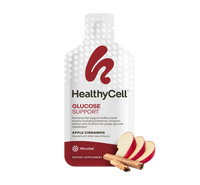L-theanine is an amino acid found naturally in tea leaves. It's considered safe to consume and has few side effects. (1) However, it's important to know what side effects to look for and how to handle them should they occur.

What is L-theanine?
L-theanine is an amino acid commonly found in tea leaves. It's also present in some mushrooms. L-theanine has a calming effect (2) and is often used as a natural remedy for anxiety.
How does L-theanine work?
L-theanine works by increasing GABA, serotonin, and dopamine levels in the brain. (3) These are all neurotransmitters that play a role in mood and emotion. L-theanine also reduces levels of stress hormones like cortisol.
What are the side effects of L-theanine?
The most common side effect of L-theanine is drowsiness. It is not a sedative but can create a sedative-like effect. If you experience any unwanted side effects, stop taking L-theanine and see your doctor.
Other side effects include:
Headache
L-theanine can cause headaches in some people, but the symptoms usually subside within a few days.
Nausea
L-theanine is most likely to cause nausea if taken on an empty stomach. Consider taking your supplement with food to alleviate this.
Diarrhea
L-theanine may cause diarrhea in some people. If you experience this side effect, stop taking L-theanine and see your doctor.
Dizziness
L-theanine can cause dizziness in some people, but this is usually due to taking too high a dose.
Anxiety
While L-theanine is often used to alleviate anxiety, it can increase feelings of anxiety in some people. This is extremely rare but is most likely caused by the changes the L-theanine has on how the brain deals with serotonin and GABA.
Gastric upset/vomiting
It is uncommon to experience gastric upset or vomiting when taking L-theanine, but possible. The usual cause is from taking an excessive dose.
Sources for side effects and adverse reactions can be found here. (4, 5)
How do you take L-theanine?
L-theanine is available in supplements and tea. The safest and most effective way to take L-theanine is in supplement form. You can find L-theanine supplements at most health food stores. The commonly recommended dose is 200-400 mg per day.
You can also get L-theanine from tea. Black and green tea both contain L-theanine. The amount of L-theanine in tea varies depending on the type of tea and how it's brewed. L-theanine is also added to some brands of bottled iced tea.
The recommended dose of L-theanine from tea is 1-3 cups per day. Be sure to read the label to see how much L-theanine is in each cup.
Can small doses of L-theanine have side effects?
Yes. L-theanine is a safe amino acid, but it can still have side effects when taken in doses of any size. If you experience any side effects, stop taking L-theanine and see your doctor.
Most people will not experience any side effects when taking L-theanine, but it's important to be aware of the possible side effects. L-theanine is a safe and effective way to reduce anxiety and promote relaxation. However, as with any supplement, it's important to talk to your doctor before taking L-theanine.
It's also important to know that L-theanine can interact with some medications. L-theanine can increase the effects of sedatives. If you're taking a medication for anxiety or depression, talk to your doctor before taking L-theanine. L-theanine can also interact with blood pressure medications. If you have high blood pressure, talk to your doctor before taking L-theanine.
Does it matter what form of L-theanine I use?
Whether you choose an L-theanine liquid supplement, pills, tea, or use it in any other form, the net result is the same - you are adding L-theanine to your body. The L-theanine will be absorbed and processed the same way, no matter what form it takes. There is no real difference between taking L-theanine as a liquid or a pill. Some people find that L-theanine tea has a milder effect than L-theanine supplements, but there is no substantial difference overall.
How long does L-theanine take to work?
L-theanine is a fast-acting amino acid. You should feel the effects within 30 minutes to 1 hour after taking it. The effects of L-theanine can last up to 8 hours.
Any side effects should show up within this period. If they do, then discontinue L-theanine immediately and consult with your physician.
Is L-theanine safe for long-term use?
Yes. L-theanine is a safe and natural amino acid that can be taken long-term without any adverse effects. (6) However, you must always adhere to the dosage guidelines. Consuming excess amounts of any supplement can be damaging to your health.
This is especially important if you have any preexisting medical conditions or are taking any medication. L-theanine is only considered safe when used by a generally healthy person with no medications that may interact.
Can I take a melatonin - L-theanine combination?
Yes. Melatonin is a hormone that helps regulate sleep. At the same time, L-theanine is an amino acid that has a calming effect and can help the body create serotonin, which is, in turn, converted into melatonin. Taking these two supplements as a melatonin L-theanine combination can help you get a good night's sleep.
L-theanine can potentiate the effects of melatonin. If you're taking L-theanine for anxiety or relaxation, taking it with melatonin may help you sleep better. If you're taking L-theanine for focus or concentration, taking it with melatonin may help you stay awake and alert.
How can these two seemingly opposite effects be possible? Simply, the levels of stress and anxiety you feel will be reduced, which makes it easier to fall asleep should you wish to do so. Your mind won't wander, and you might not experience intrusive thoughts that keep you awake.
In the same way, your ability to concentrate on a task is increased when your mind doesn't wander, and you aren't constantly being distracted by thoughts of other things.
The side effects of melatonin can be drowsiness, dizziness, and headaches. (7) As L-theanine can produce similar side effects, it may not always be immediately clear which supplement is causing them. If you're taking L-theanine and melatonin together, and start experiencing any adverse effects, discontinue both supplements immediately and consult your physician.
Reducing the side effects of L-theanine
One way to reduce the side effects of L-theanine is to start with a lower dosage and gradually increase it over time. This allows your body to adjust to the amino acid and reduces the likelihood of any adverse effects. You can also take L-theanine with food. This will help slow down its absorption into the bloodstream and reduce the likelihood of any side effects.
If you're taking L-theanine for focus or concentration, you can try caffeine supplements. This will help counteract the drowsiness that L-theanine can sometimes cause. However, keep in mind that caffeine has its own side effects.
If you're taking L-theanine for anxiety, you can also try a Valerian supplement. This will help reduce the physical symptoms of anxiety, such as muscle tension and rapid heartbeat.
When you're taking L-theanine to help you sleep, a good option is to choose a supplement with a combination of ingredients designed to promote a healthy sleep cycle. This can help to prevent some of the side effects you might otherwise see when using L-theanine on its own.
Healthycell REM Sleep helps you fall asleep, stay asleep, and wake up feeling refreshed by supporting your body through every stage of sleep. Calming herbal extracts get your body into sleep mode, while nutrients help your body regulate its temperature. If you stay cool at night, you'll experience a better sleep quality, so temperature regulation is highly important for sleep quality.
With deep, lasting sleep that restores your body through the night, you'll wake up feeling refreshed. Sleep hormones are regulated through a blend of natural ingredients, making it easier to achieve REM sleep, critical for feeling rested, and rejuvenated in the morning.
Conclusion
L-theanine is a safe and effective amino acid with few side effects. However, as with any supplement, you should be aware of a few potential side effects. The best way to reduce the likelihood of any adverse effects is to start with a lower dosage and increase it gradually over time. You can also take L-theanine with food or combine it with other supplements to reduce the likelihood of any side effects.
If you experience any L-theanine side effects, stop taking L-theanine and see your doctor. L-theanine is not a medication and should not be taken as a replacement for any medication prescribed by your doctor. L-theanine is a natural supplement that can help improve your health in various ways. When used in combination with other ingredients, L-theanine can have an even greater impact on your health and well-being.





